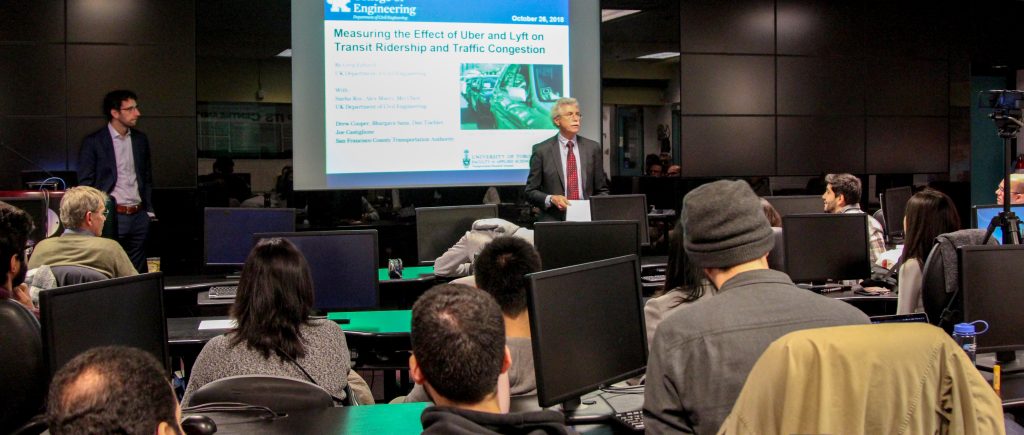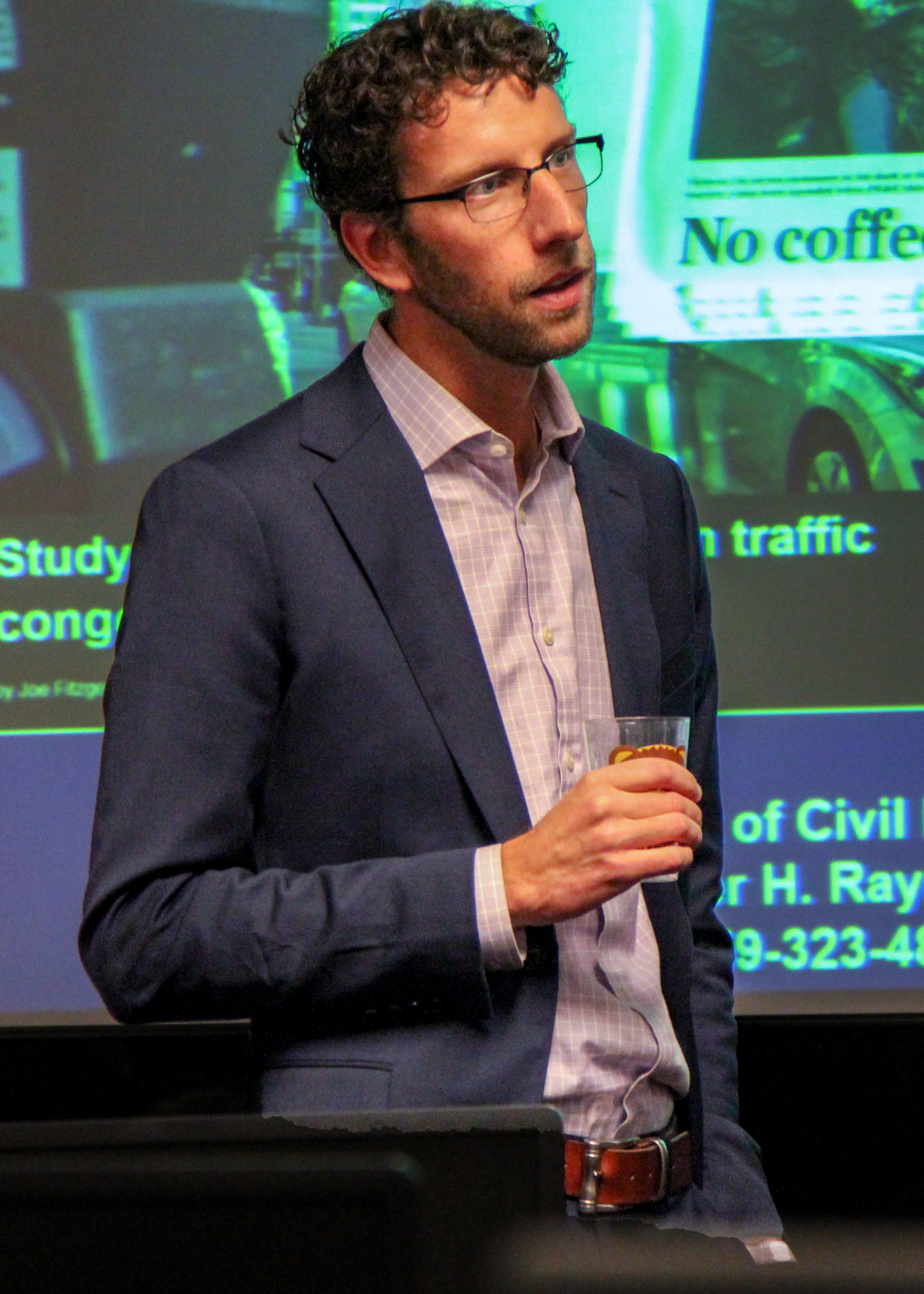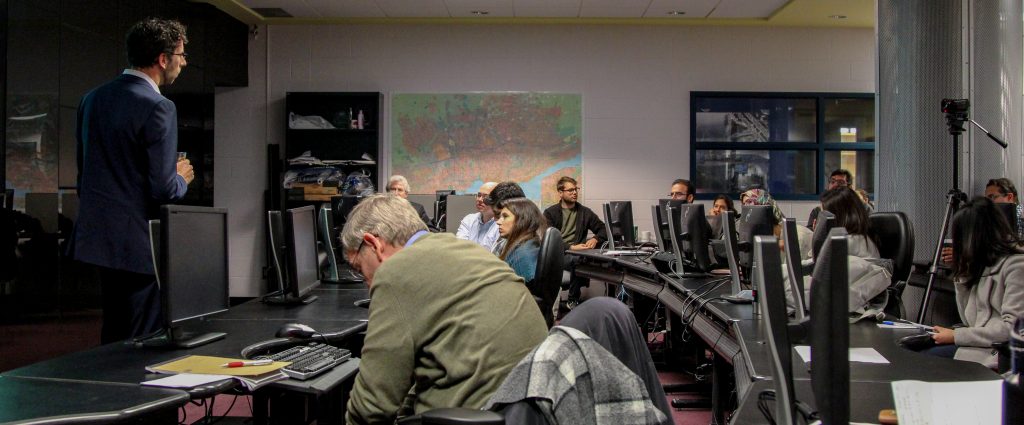
Dr. Gregory Erhardt, Assistant Professor in Department of Civil Engineering at University of Kentucky, presented his ongoing research on measuring the effects of Transportation Network Companies (TNCs), such as Uber and Lyft, on the transportation system.

Do TNCs increase or decrease transit ridership? Do TNCs increase or decrease traffic congestion? Previous studies have produced conflicting answers to these questions, making this a controversial topic in transportation literature.
The presentation “Using Big Data to Quantify the Effect of Transportation Network Companies on Transit Ridership and Congestion,” took place October 26, 2018. Dr. Erhardt was welcomed by a large audience consisting of professors, postdoctoral fellows and graduate students.

Abstract
This research examines the effect of Transportation Network Companies (TNCs), such as Uber and Lyft, on the transportation system, focusing on two questions: Do TNCs increase or decrease transit ridership? Do TNCs increase or decrease traffic congestion? Existing research on both questions has produced conflicting results and been hampered by a lack of data. We take advantage of a unique data set scraped from the Application Programming Interfaces (APIs) of two TNCs in San Francisco to answer these questions empirically.
Short Biography
Gregory Erhardt is an Assistant Professor in the Department of Civil Engineering at the University of Kentucky. He specializes in developing more sophisticated modeling tools to forecast the effects of proposed transportation projects, analyzing new and emerging data sources to understand the effects of past projects, and applying both to improve policy and planning decisions. Dr. Erhardt joined academia after 13 years working in practice developing and applying activity-based travel demand models. His PhD at UCL’s Centre for Advanced Spatial Analysis focused on the use of continuously collected data to measure emerging mobility trends.
